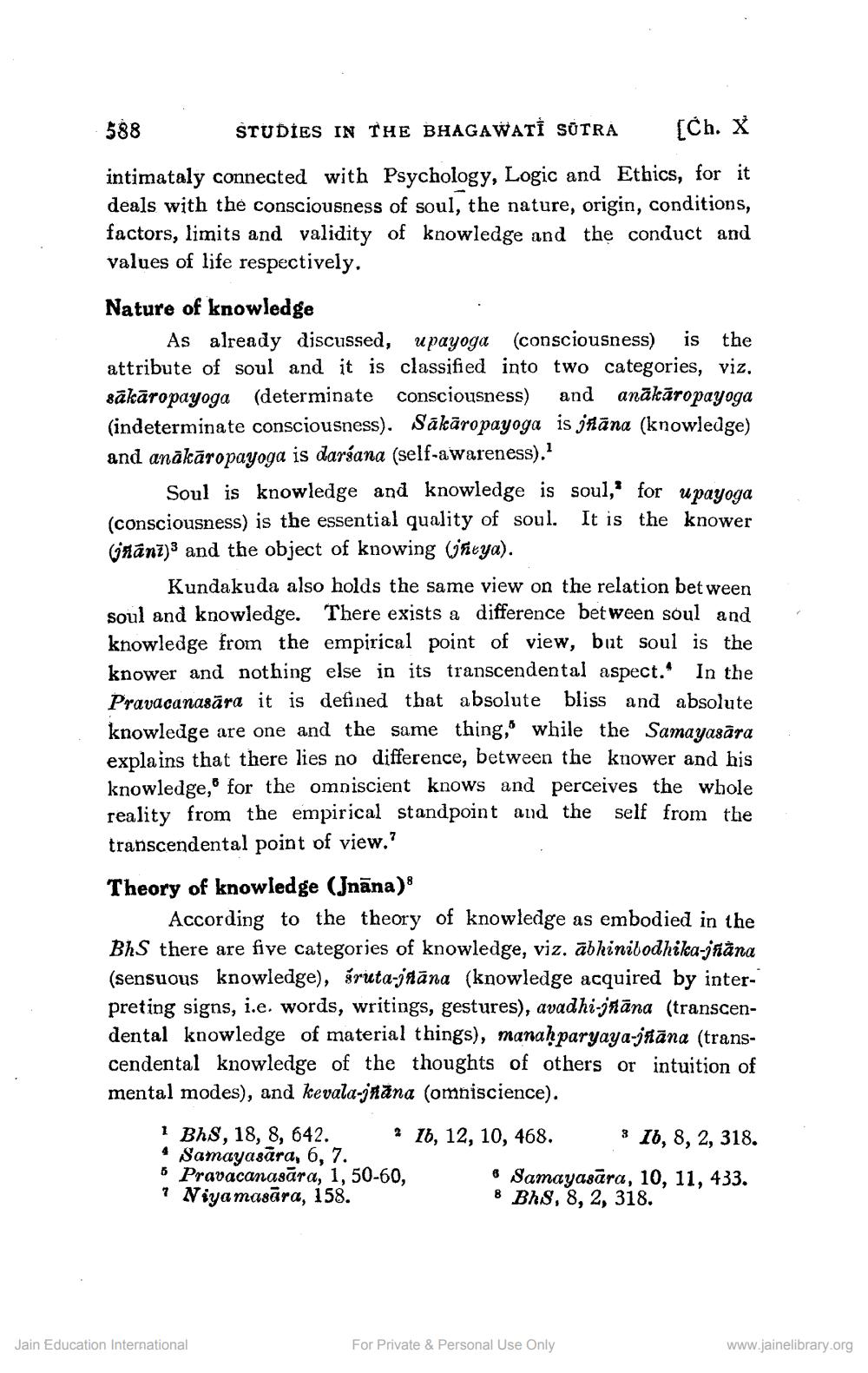________________
588 STUDIES IN THE BHAGAWATI SOTRA
h. X intimataly connected with Psychology, Logic and Ethics, for it deals with the consciousness of soul, the nature, origin, conditions, factors, limits and validity of knowledge and the conduct and values of life respectively, Nature of knowledge
As already discussed, upayoga (consciousness) is the attribute of soul and it is classified into two categories, viz. sākāropayoga (determinate consciousness) and anākāropayoga (indeterminate consciousness). Sākāropayoga is jñāna (knowledge) and anākāropayoga is darsana (self-awareness).
Soul is knowledge and knowledge is soul," for upayoga (consciousness) is the essential quality of soul. It is the knower (stanz)and the object of knowing (jicya).
Kundakuda also holds the same view on the relation between soul and knowledge. There exists a difference between soul and knowledge from the empirical point of view, but soul is the knower and nothing else in its transcendental aspect. In the Pravacanasāra it is defined that absolute bliss and absolute knowledge are one and the same thing," while the Samayasāra explains that there lies no difference, between the knower and his knowledge, for the omniscient knows and perceives the whole reality from the empirical standpoint and the self from the transcendental point of view.? Theory of knowledge (Jnāna)
According to the theory of knowledge as embodied in the Bhs there are five categories of knowledge, viz. ābhinibodhika-jfåna (sensuous knowledge), śruta-jntāna (knowledge acquired by interpreting signs, i.e. words, writings, gestures), avadhi-jñāna (transcendental knowledge of material things), manaḥparyaya-jñāna (transcendental knowledge of the thoughts of others or intuition of mental modes), and kevala-jhana (omniscience).
i Bhs, 18, 8, 642. , 16, 12, 10, 468. 3 16, 8, 2, 318. * Samayasara, 6, 7. 5 Pravacanasāra, 1, 50-60,
& Samayasara, 10, 11, 433. 7 Niya masara, 158.
8 Bhs, 8, 2, 318.
Jain Education International
For Private & Personal Use Only
www.jainelibrary.org




